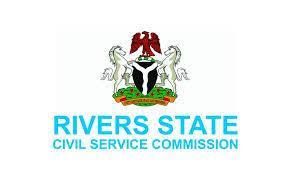The Nigerian Peace Corps (NPC) is a youth-oriented paramilitary organization established to promote peace, discipline, and community service across the nation. With a strong focus on empowering young Nigerians through leadership training, civic engagement, and social intervention, the Peace Corps operates under the guidance of the National Assembly Act and in alignment with Nigeria’s broader security and development objectives.
Although not yet fully absorbed as a statutory federal agency, the Peace Corps continues to carry out valuable duties in schools, communities, and during public functions. This blog outlines the key roles and responsibilities of the Nigerian Peace Corps in building a more peaceful and disciplined Nigeria.

Official Duties and Responsibilities of the Nigerian Peace Corps
1. Promotion of Peace and Conflict Resolution
The core duty of the Nigerian Peace Corps is to foster peace and prevent conflicts, especially among youths. They mediate disputes in schools, communities, and public gatherings through non-violent communication and intervention strategies.
2. Youth Discipline and Leadership Training
Peace Corps officers conduct leadership seminars, youth boot camps, and personal development programs. They instill values of patriotism, integrity, and self-discipline in young people, especially in academic institutions.
3. Security Support in Schools and Public Events
Though not armed, NPC personnel support internal security by helping maintain order in secondary and tertiary institutions, government functions, and public events. They assist in crowd control, student guidance, and basic safety enforcement.
4. Civic Education and National Orientation
The Peace Corps plays an essential role in civic awareness campaigns. They educate citizens—especially students—on the Nigerian Constitution, electoral processes, human rights, and national duties.
5. Community Service and Volunteerism
NPC members regularly engage in sanitation exercises, neighborhood watch activities, youth mobilization, and awareness drives on health, education, and environmental sustainability.
6. Emergency Response and Public Safety
Peace Corps officers are trained in first aid, fire safety, and emergency evacuation techniques. They often support during natural disasters or crises, providing non-technical but vital assistance.
7. Collaboration with Government Agencies
The Nigerian Peace Corps collaborates with organizations like the National Orientation Agency (NOA), Nigerian Red Cross, NYSC, and security agencies in advancing peace and youth development projects.
FAQs
Q1: Is the Nigerian Peace Corps part of the Nigerian military?
A1: No. The Peace Corps is a paramilitary organization but not officially part of the armed forces or police.
Q2: What is the main focus of the Peace Corps?
A2: Promoting peace, youth empowerment, conflict resolution, and community service.
Q3: Can Peace Corps officers arrest people?
A3: No, they have no legal power to arrest but can report incidents to law enforcement and help maintain order.
Q4: Where do Peace Corps officers work?
A4: Mostly in schools, communities, and public event venues where discipline and peacekeeping are required.
Conclusion
The Nigerian Peace Corps is a vital force for grassroots peacekeeping and youth development. Through its non-combative, service-oriented model, the Corps plays a unique role in reducing conflict, educating citizens, and guiding the next generation toward a peaceful and prosperous Nigeria. While not a fully statutory body yet, its roles in discipline, security support, and civic engagement continue to make a meaningful impact across communities nationwide.

















